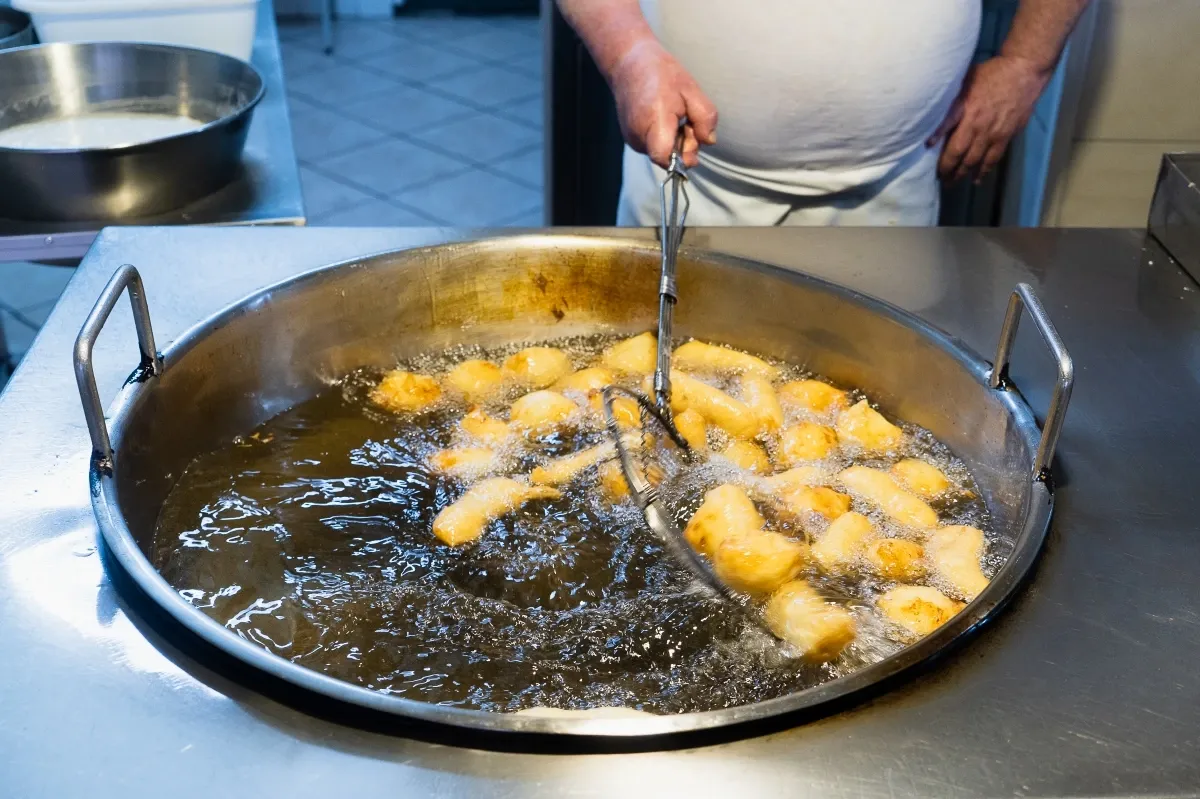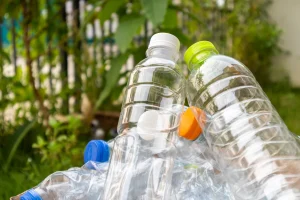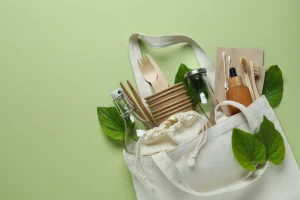Table of Contents
For WargaAsri who enjoys cooking, may be familiar with used cooking oil (UCO). This oil is the result of repeated frying that appears cloudier over time.
Rather than letting it go to waste, you can repurpose UCO. To learn more about UCO and how to repurpose it into new items, check out the explanation below!
What Is Used Cooking Oil?

Used cooking oil (UCO) is oil that has been used multiple times for frying. Over time, it changes color, taste, and smell due to food particle contamination and oxidation.
Frequent heating at high temperatures also reduces its quality, making the oil darker and thicker and giving it an unpleasant odor. UCO typically comes from various types of cooking oil, such as vegetable and corn oil, that have been repeatedly used for frying.
Unfortunately, used cooking oil is a form of waste that poses risks to both the environment and human health. In Indonesia, its usage is significant, especially in households and the food industry, leading to a high volume of UCO waste.
Each year, Indonesia generates approximately 715 kilotons of used cooking oil. Without proper processing, this waste can contribute to environmental pollution.
Read also: How to Get Rid of Trash: Proper Ways You Should Know!
What Is in Used Cooking Oil?

Used cooking oil breaks down and accumulates various chemical compounds that can harm your body. As a form of waste, it contains substances that you should avoid. Here’s what used cooking oil contains:
1. Free Radicals
You may have heard that used cooking oil contains free radicals. These are highly reactive compounds that can damage body cells and contribute to degenerative diseases. Free radicals are also carcinogenic, meaning they may increase the risk of cancer.
2. Trans Fatty Acids
Trans fatty acids are formed when vegetable oils undergo partial hydrogenation, making them solid or semi-solid.
In used cooking oil, trans fats develop due to repeated heating at high temperatures. Continuous consumption of these fats can raise the risk of heart disease.
3. Carcinogenic Compounds
Used cooking oil also contains carcinogenic compounds such as polycyclic aromatic hydrocarbons (PAHs) and acrylamide, which are formed during high-temperature cooking. These substances are known to increase the risk of cancer.
Also read: Note! 7 Types of Plastic Waste and How to Recycle Them, Take Note!
How Harmful Is Used Cooking Oil for Health and the Environment?

As mentioned earlier, used cooking oil contains various harmful compounds that can pose health risks if reused. Additionally, it contributes to liquid waste pollution, negatively impacting the environment.
Here are some risks of UCO to both health and the environment:
- Increases the risk of heart disease and cancer.
- Damages body cells.
- Causes digestive issues.
- Clogs drains and sewers.
- Contaminates soil and water.
- Blocks oxygen flow to plants and animals exposed to used cooking oil.
- Produces foul odors when disposed of improperly.
- Pollutes coastlines.
- Obstructs water treatment facilities.
- Blocks household kitchen pipes.
What Can Used Cooking Oil Be Used For?

Since used cooking oil poses risks to both health and the environment, it must be disposed of properly. Throwing it in the trash bin or pouring it down the drains can lead to soil and water contamination.
To manage used cooking oil responsibly, store it in a sealed, leak-proof container. Once collected, you can take it to organizations that recycle or process it safely.
Here are some of the ideas to repurpose used cooking oil:
1. Converting Used Cooking Oil into Biofuel
One of the most effective ways to repurpose used cooking oil is by converting it into biofuel—a practice that has been widely researched and adopted.
A study published in the Journal of Hazardous Materials found that waste cooking oil can be an alternative fuel for incinerators, replace petroleum-based fuels, and generate electricity.
With its significant potential as a renewable energy source, used cooking oil is gaining attention as a sustainable alternative. Recognizing this, Chandra Asri Group collaborated with TUKR (part of Biofront).
This collaboration initiates the UCO gathering as an environmentally friendly action affecting the environment.
Manajemen Pengumpulan Minyak Jelantah untuk Lingkungan or MINYAKU, is one such initiative.
One of Chandra Asri Group’s circular economy projects, MINYAKU, involves inviting the community to gather spent cooking oil at the Cilegon factory’s operational area in collaboration with TUKR.
To ensure that the oil collection process is conducted under procedures, this program includes trash banks, associations, and fostered communities in addition to the local community.
Those who trade their used cooking oil will receive a balance of savings per liter. In addition to promoting environmental preservation, the MINYAKU initiative is anticipated to increase local economic growth and public awareness of the proper handling of used cooking oil.
2. Using UCO as a Raw Material for Soap
You can repurpose used cooking oil into bath soap or dishwashing soap. To make it, you’ll need used cooking oil, water, caustic soda (sodium hydroxide), and fragrance oil.
First, soak the UCO in charcoal for a day to help remove impurities, then strain it using a fine mesh or cloth. Once the oil is purified, carefully mix caustic soda with water, then combine it with the used cooking oil.
Stir the mixture until it dissolves completely, then add fragrance oil. Pour the mixture into molds and let it harden.
Since caustic soda is a strong chemical, always wear gloves for safety precautions and use appropriate protective equipment.
3. Used Cooking Oil as a Lubricant and Cleaner
Another way to repurpose used cooking oil is by using it as a lubricant for mechanical equipment or as a cleaning agent for oil stains. It can also effectively remove stains from household appliances.
By understanding what used cooking oil is, its risks, and its potential uses, you can take steps to dispose of it responsibly and minimize environmental harm. Proper waste management helps keep our surroundings cleaner and more sustainable.
Beyond recycling used cooking oil, there are many other ways to contribute to environmental conservation—one of which is by joining Indonesia Asri.
This campaign encourages you to take meaningful actions and participate in fun sustainability challenges through #SiPalingSustainable, promoting a greener and more responsible lifestyle.
So, what are you waiting for? Join the Warga Asri community today and take part in making a difference for the environment!
Read also: 8 Ways of Organic Waste Management, Easy and Eco-Friendly!










